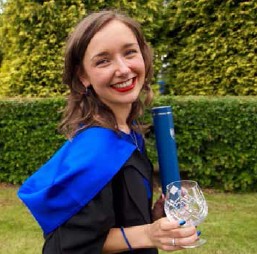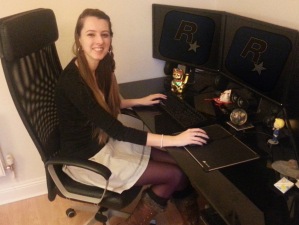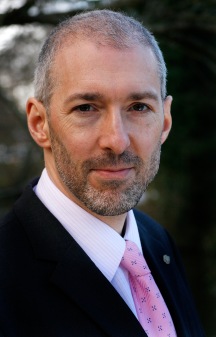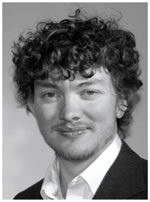 Dr Andrés Furukawa has brewed all over the world. Born and raised in Mexico City, he began his career there in the “black arts of brewing” in 1999 as a brewer assistant at Santa Fe Beer Factory, before moving on as Fermentation supervisor at Cervecería Modelo.
Dr Andrés Furukawa has brewed all over the world. Born and raised in Mexico City, he began his career there in the “black arts of brewing” in 1999 as a brewer assistant at Santa Fe Beer Factory, before moving on as Fermentation supervisor at Cervecería Modelo.
“In 2002, I moved to Berlin, Germany, staying there until 2006. During this period I conducted my Brewmaster studies at the Versuchs- und Lehranstalt für Brauerei (VLB), Technical University Berlin, as well as a traineeship at Warsteiner Brauerei, and working as Brewmaster at Lemke Brauerei, where I learned most of the German practical brewing methods and developed a wide spectrum of beer styles, i.e. German, Scottish, English and Belgian beers.”
It was at this point that under the advice of his Brewmaster study mentor, Prof. Dr. Karl Wackerbauer, he applied to the International Centre for Brewing & Distilling (ICBD) to study for a PhD. “My main driver to conduct my PhD in brewing at Heriot-Watt was the reputation of the ICBD in the United Kingdom and overseas, but mainly to learn the Scottish brewing methods and philosophies, including whisky distilling. After my experience at the ICBD, I definitely gained broader perspective in technical brewing and beer quality.
 I conducted my PhD in Brewing from September 2006 to December 2009. My experience in Scotland, particularly in Edinburgh at Heriot-Watt has had a significant impact on my life and psyche beyond the PhD study itself. I did not only gain technical knowledge during my PhD study, but also great culture on varied subjects, which the Scottish society encompasses, and overall life teachings by amazing and genuine persons with out-of-the box mentality and perspectives towards life.
I conducted my PhD in Brewing from September 2006 to December 2009. My experience in Scotland, particularly in Edinburgh at Heriot-Watt has had a significant impact on my life and psyche beyond the PhD study itself. I did not only gain technical knowledge during my PhD study, but also great culture on varied subjects, which the Scottish society encompasses, and overall life teachings by amazing and genuine persons with out-of-the box mentality and perspectives towards life.
I did not get involved with any particular Heriot-Watt social clubs or the likes. I must confess I was just too nerdy trying to attain my PhD degree as per the official programme of 3 years, giving the best outcome I could deliver. The nerd achieved the goal!”
Andrés’ determination to put his stamp on the brewing industry continued after he graduated, which is when he started to pull plans together for what would become his own brewery, Macken Bryggeri.

“After obtaining my PhD degree, I moved to my parents in-law in Slovenia to do some farming, and to start developing Macken Bryggeri’s. I was soon hired as Brewing Technologist for the technology company Pursuit Dynamics (PDX) in Huntingdon, Cambridgeshire. In this company I had the opportunity to co-author a patent of a mashing system with the use of steam injection.
Throughout my spare time I continued developing the branding of Macken Bryggeri and some recipes, as well as arranging all legal paperwork to register the business in Sweden. In November 2013, I officially moved to Sweden and was fully dedicated to materialize Macken Bryggeri. Now we have 7 different beers released in the Swedish market! However, there is still a long journey to go through.”

Andrés’ choice to move to Sweden was quite an easy one. “Swedish craft brewing market is one of the fastest growing beer markets in Europe and probably worldwide. An ordinary Swede has certainly a broader craft beer knowledge than any other European due to the alcohol monopoly “Systembolaget” owned by the Swedish estate offers a craft beer catalogue of more than 1000 beers from all over the world.”
One of the challenges facing any new brewery is creating something unique, but which also meets the high standards customers have come to expect. “To make a top quality beer, you need top quality-brewing ingredients, i.e. water, barley malt, adjuncts and hops, as well as the best brewing yeast, instinctive brewer skills, devotion, imagination, creativity and rejection of conformity…and FUN, of course! No room for bitter brewers with their bitter beers!
 My favourite beer brands will always be the classic ones, as they know their craft very well after mastering their beer recipes for centuries or decades.”
My favourite beer brands will always be the classic ones, as they know their craft very well after mastering their beer recipes for centuries or decades.”
Andrés’ top priority for Macken Bryggeri is to establish it in the Stockholm craft beer market, before eventually growing throughout Sweden. “We are currently working on having more exposure in the market. We cannot really complain about our achievements in one year of business and recognition, but as any business there is much to do ahead!”
I do have two pieces of advice for future graduates and everybody:
Firstly: do not to follow my footsteps and anyone’s steps, but your own! The most exciting thing in life is learning and creating through your very own personal story. Break away from all conventions that do not lead to your creative success and self-realization.
Secondly: refuse to conform! Like William Blake once wrote in his masterpiece “The Marriage of Heaven and Hell” (1790): “If the fool would persist in its folly he would become wise”. So enjoy the ride!”
You can follow the brewery on Facebook by clicking here and visit Macken Bryggeri’s website here.
At the moment the only way to purchase online Macken Bryggeri beers is through a purchase format called “Privatimport” from the alcohol monopoly Systembolaget:
http://www.systembolaget.se/bestalla-drycker/privatimport/
 The 2015 recipient was Marianna McLauchlan: “Perhaps the most valuable and cherished outcome from my experience are the many relationships I now have with people of all ages, from many disciplines and from all over the world. I am incredibly thankful for the kindness and generosity of spirit shown to me by my UN colleagues and the many, many ‘New Yorkers’ I have met throughout my time here.”
The 2015 recipient was Marianna McLauchlan: “Perhaps the most valuable and cherished outcome from my experience are the many relationships I now have with people of all ages, from many disciplines and from all over the world. I am incredibly thankful for the kindness and generosity of spirit shown to me by my UN colleagues and the many, many ‘New Yorkers’ I have met throughout my time here.”


 If there is one thing that puts the fear into people more than anything else, it has to be public speaking, whether it is at a wedding or a business meeting. The feeling of hundreds of eyes on you, and they are all going to laugh when (not if) you make your first mistake. And that means you can never show your face in public again and may as well become a hermit. It can be enough to turn the bravest amongst us into quivering wrecks.
If there is one thing that puts the fear into people more than anything else, it has to be public speaking, whether it is at a wedding or a business meeting. The feeling of hundreds of eyes on you, and they are all going to laugh when (not if) you make your first mistake. And that means you can never show your face in public again and may as well become a hermit. It can be enough to turn the bravest amongst us into quivering wrecks.







 My favourite beer brands will always be the classic ones, as they know their craft very well after mastering their beer recipes for centuries or decades.”
My favourite beer brands will always be the classic ones, as they know their craft very well after mastering their beer recipes for centuries or decades.” Choosing to study Computer Science was an unusual step for the time. For those students who did, it meant a curiosity about a relatively unknown field. The terminology and the actual coding was indeed a ‘foreign’ language. In the words of alumnus Erik Pike:“…[this] degree needed confidence, not many people have this degree, take opportunities, [and be] optimistic.”
Choosing to study Computer Science was an unusual step for the time. For those students who did, it meant a curiosity about a relatively unknown field. The terminology and the actual coding was indeed a ‘foreign’ language. In the words of alumnus Erik Pike:“…[this] degree needed confidence, not many people have this degree, take opportunities, [and be] optimistic.”












